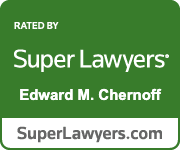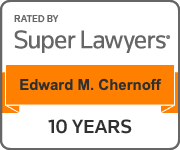The Pre Charge Investigation
January 09, 2023
I met with a man the other day who was being investigated by a local police agency. Typically, an individual is not aware that he is in the cross hairs of a police investigation until he gets a phone call from a police detective or government agency like CPS. By the time he is informed, the investigation has been ongoing for some time. The playbook for State and Federal police investigators is to wait to speak with the target after most of the evidence and testimony has been accumulated. In cases being worked up by the FBI, video surveillance might have already taken place.
By the time a criminal lawyer gets involved in the case, the police investigator has already reached a conclusion about the strength of his case. He may already have decided to recommend charges to the District Attorney or U.S. Attorney. What can a criminal defense attorney do to help an accused in this situation? Quite a lot, but maybe not what you would expect.
It worries me that some lawyers leave an impression with their potential clients that there is a silver bullet that will make their werewolf disappear. An individual who believes he is the subject of a police investigation is very fragile. He wants to hear that everything is going to be okay so long as he pays a particular amount to a particular person. A lawyer that guarantees a result in a pre-charge investigation is taking advantage of a desperate human being. No guarantees can be credibly made that charges will not be filed.
What a criminal lawyer can do in his pre-charge representation is protect. Protect his client from being charged on false, incomplete or incompetent evidence. Protect his client from being the victim of a surprise arrest. Protect his client from incriminating himself. Protect the process.
Once he is hired on a pre-charge matter, the first thing a lawyer needs to do is get thoroughly familiar with the client’s version of events. Sometimes the client doesn’t know why the police are investigating him, but often he has a good idea from where the accusation is coming. Once the basics are known, the criminal lawyer can identify any evidence that might be obtained that may not have been known to the investigator and can potentially back up his client’s version. For example, in a date rape investigation the police officer might not have received all of the communications between the complainant and the accused. In such a case, it would be a wise idea for the lawyer to become thoroughly familiar with all the texts, voicemails and social media messaging between the parties.
A polygraph is sometimes helpful. It is not going to change the mind of an investigator with a fixed opinion, but it can motivate him if he is on the fence. The lawyer should make sure that the polygraph is given under the protection of the attorney client privilege. It is not reliable enough to be used as evidence in a criminal case and it sometimes will result in false positives, which naturally should not be shared with the police. Police like to offer polygraphs, but not for the reason most people think. I’ve had many clients who passed a police polygraph and were charged. The police polygraph is used as an implement of interrogation. A police officer will polygraph a person and, irrespective of the result, will come into the interrogation room afterwards to tell the accused that the test showed he wasn’t being truthful. This technique is designed to get the accused to change his story and once confronted with the change, to admit to the offense. It’s not fair but it is pernicious.
Once thoroughly familiar with the facts of the accusation, a lawyer should call the investigator. The first goal is to gauge the attitude of the police detective. Some police officers shut down when speaking with a criminal defense lawyer, either out of fear or distrust. There is not much a criminal lawyer can do with an investigator who refuses to engage in any conversation. Fortunately, this is rare. Most police detectives are in their position because they are experienced and confident enough not to fear a lawyer.
Usually, a police detective will share the rudiments of an accusation with the attorney who represents the target. Although he will not give up all the evidence he has, he is likely to hint at the basis of his investigation. He might also admit his impression of the case and whether he intends to recommend charges to the District Attorney. Finally, he will offer the accused an opportunity to speak with him and tell “his side of the story”.
I do not believe that an accused should never talk to a police officer who thinks he committed a crime. However, he certainly should never speak unless his lawyer thinks it’s a good idea, and nobody should ever talk to a suspicious cop without being accompanied by his lawyer.
When would it make sense for an accused to speak to the police? That’s complicated and sometimes depends on the lawyer’s gut instinct. A criminal lawyer must balance the risk and reward of such an encounter. The risk side is always the same, that his client will say something incriminating. If the reward is substantially great, it might still be worth it. However, if the only reason he wants to put his client in front of the cop is to convince the cop of his client’s innocence, then no reward exists if the cop already believes in his client’s guilt. You can’t turn a tank by standing in front of it.
This is not to say that a lawyer can never have an impact on a cop’s decision. I’ve convinced cops to drop a case on many occasions. Frequently an investigator is sitting on the fence about who to believe and needs a push. It is always much safer for a cop to file a charge. He doesn’t have to explain to the complainant why he made this decision. However, he also has an ownership interest in the cases he works up and wants to be on the righteous side. If he is not sure what side that is, a lawyer can have a tremendous impact.
There are things a lawyer can do other than have his client speak with the cop. He can supplement the information the cop already has. A favorable polygraph exam is an example. In some past cases I have supplied surveillance videos, text messages, photographs, sworn statements, medical records and bank receipts. I was careful to provide them in a way that required the police detective to include them in his investigative file. Even if it does not change the cop’s opinion, supplementing evidence is important for two reasons. First, during presentation of the case, the Assistant District Attorney may consider the information. Second, at trial the police investigator can be asked about his consideration of this information.
A lawyer must always consider a client’s potential future in court when making pre-charge decisions. A client may lose the battle of the initial charge but still have his case dismissed in court or at the Grand Jury. In the courtroom, a lawyer will be dealing with a completely different decision maker. Much of what the lawyer does in the pre-charge phase may be designed to set the stage for when he starts negotiating with the Assistant District Attorney in court. A police officer makes decisions based on probable cause. A prosecuting attorney knows that his case will be judged more harshly. Information presented to the investigating officer may not immediately move the needle but have substantial effect in negotiations with the assigned courtroom prosecutor. On one occasion I had my client speak to an investigating police officer specifically because I knew how I would use it in court. That case was reduced to something my client could live with.
I advise anyone who is accused of a crime to hire an experienced criminal defense attorney right away. It is folly to stick your head in the sand and hope it all goes away. It won’t and you will have left the impression that you are hiding from the accusation because of guilt. A good, experienced lawyer can help you even if you are ultimately charged with a crime. If you have any more questions, please feel free to call the office and speak with me.
























Reviews Matter
★
★
★
★
★
★
★
★
★
★
★
★
★
★
★
★
★
★
★
★
